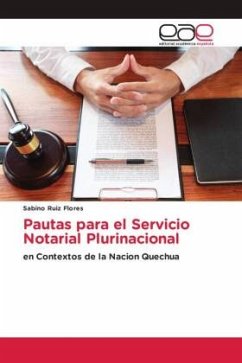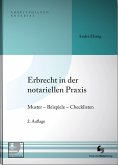Within the framework of the profound state transformation represented by the new Bolivian constitutionalism, the normative development in the notarial service is concretized from the entry into force of Law No. 483 of the Plurinational Notary's Office in accordance with the principles and foundations of the new community plurinational constitutionalism, the Law of the Notary's Office establishes a new institutional organization of the notarial service, redefines the profile, attributions and responsibilities of the notary function and above all establishes the application of egalitarian legal pluralism and the mechanisms of cooperation and interjurisdictional coordination with the indigenous native peasant legal systems of the indigenous native peasant nations and peoples.The present work is part of a case study entitled "THE PLURINATIONAL NOTARIAL SERVICE AND THE QUECHUA LEGAL SYSTEM OF THE PALCA MAYU COMMUNITY". The problem to which it is intended to outline some alternative solutions has to do with the absence of intercultural policies and practices and egalitarian pluralism.








